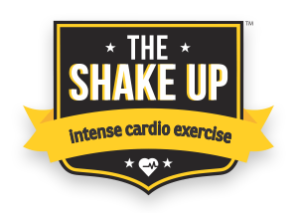There are lots of myths, legends, and outright lies circulating out there when it comes to transforming your body. How it can be done, what supplements you can take to expedite the process, how long it will take you, and how lasting the results can be… it can be difficult to sort out the fact from the fiction. So we’ve put together a brief guide to how you can safely and effectively improve not only the look, but the function of your body.
What is body composition?
‘Body composition’ is a phrase that we use to acknowledge that there are two basic forms of ‘flesh’ that every person has on their bodies. One is muscle, which we need in order to move our bodies and other items around. The other is fat, which we need to store energy for times in which our output of energy exceeds our intake of food. When we talk about composition, a lot of what we look at is the ratio of muscle to fat – and where each is located. An ideal body composition involves a high ratio of muscle to fat, spread over the body.
Why does body composition matter?
A healthy body composition means that you have enough fat to provide you with energy reserves, but not enough to weigh you down and make your muscles work harder than they need to. It also means that your muscles are strong enough that you can perform your daily duties without struggling. When it comes to looks, body composition is important because muscle tissue is leaner and less ‘jiggly’ than fat, providing a more streamlined appearance. And perhaps most importantly, muscle tissue tends to increase metabolism, as it requires more energy to maintain than fat does. The more muscle on your body, the more efficiently your body processes and uses the food you eat.
Why can’t I just lose weight?
One of the biggest problems in women’s health is that of ‘yoyo’ dieting. When we simply cut consumption of calories or go on crash diets, we might be making our bodies lighter – but we’re not making them healthier. A stressed or unhealthy body might lose weight, but it’s likely to generate a lot of cravings along the way. Remember that our bodies have evolved to avoid starvation at all costs, so they have a number of ‘panic reflexes’ that can cause us to crave fatty, carb-laden foods in the middle of a weight-loss diet – which will often cause us to fall off the diet wagon and end up right where we started or worse. Contrast this to building muscle, where using and making little tears in our muscle tissue causes the body to consume fat reserves in order to make repairs, and this muscle tissue, in turn, uses more energy to maintain itself.
Do I really need to bulk up?
One of the most pervasive myths floating around the fitness world is that if women do weight training, they’ll turn into little mini-Hulks with muscles galore. The fact is, our dominant hormones are a lot different to men’s, and without the large doses of testosterone that float around male bodies, most women won’t come anywhere near looking like the bodybuilding champions that you might be imagining – even if they work very, very hard at it. What weight training will do for you is to increase your strength, make everyday tasks easier, increase your metabolism, and decrease your chances of developing osteoporosis later in life.
So I can lose weight this way?
We want you to be very clear on this point. Most people do lose weight on our programs. However, because muscle weighs more than fat, it’s easy to get discouraged if you depend on the scales for a progress report. If you lose a kilogram of fat but add a kilogram of muscle, you’ll be thinner AND stronger – but the scales will tell you that you haven’t made a smidge of progress. So we always recommend that you use a tape measure at home as well. More to the point: you’ll lose fat, gain muscle, get stronger, and have more energy.

